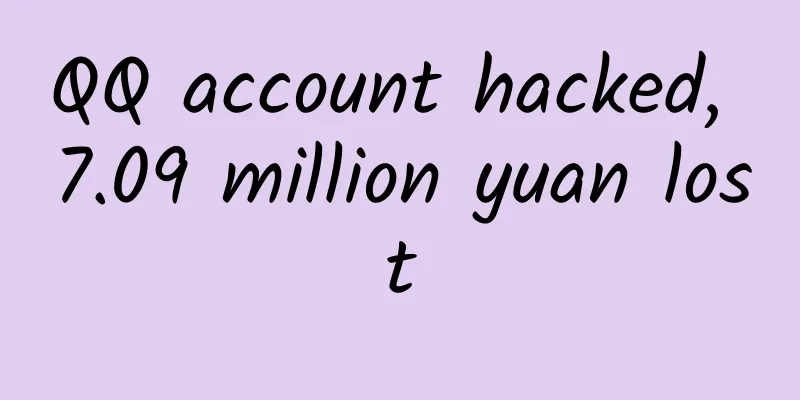Will a new round of Internet bubble come ten years later?

|
Alibaba 's initial public offering (IPO) will set a record for the highest financing in history. Previously, Alibaba announced an IPO price guidance range of $60-66 per share, with a maximum valuation of $169.8 billion. However, foreign media Questor believes that Alibaba's high valuation is likely to be a bubble and recommends British investors to stay away. In fact, discussions about a new round of Internet bubble have never stopped since the beginning of this year. Judging from the market performance, this round of technology industry boom has many similarities with the "Internet bubble" more than ten years ago: company valuations are high, start-ups have a large number of active users - but have not achieved profitability. As a result, as the market continues to hit new highs, investors' concerns are also coming one after another. However, in the eyes of Cao Darong, co-founder and managing director of Lightspeed China Venture Capital, the current Internet boom does not mean that we are experiencing a second bubble. "The situation is not as bad as imagined," he said at the Summer Davos Forum held on September 11. "As for Alibaba, its IPO valuation is relatively reasonable. There may be a little bubble, but it is not too serious." Bubble repeats itself? Ten years ago, not long after the US "Internet bubble" burst, the entire industry fell into a trough and was in mourning. In the following decade, US technology companies also experienced a rebirth and prosperity again. Whether it is Google , Apple , Amazon , or Facebook , the market value has exceeded 100 billion US dollars. A large number of small and medium-sized enterprises such as Twitter, Uber, and Snapchat have also become star companies that investors are competing to pursue. According to Bloomberg data, the overall earnings of the U.S. technology sector in the second quarter increased by 12.3% year-on-year, reaching the highest level in a year. Among the top ten industries in the S&P 500 index, the technology sector has also become the best performing sector since mid-May, with a cumulative increase of nearly 9%. In addition, the Nasdaq Composite Index has risen by 7.9% so far this year, while the S&P 500 index has risen by 6.6% and the Dow Jones Index has only risen by 1% during the same period. Alibaba's IPO roadshow in the United States also received a warm response. In the view of Max Levchin, founder and CEO of HVF, Alibaba's high valuation is supported by its fundamentals. He said, "Alibaba accounts for 80% of China's e-commerce market share and grew by 46% last year. For an emerging company like this, the valuation is still relatively reasonable." Zhu Ning, vice president of Shanghai Advanced Institute of Finance at Shanghai Jiao Tong University, believes that the value of high-tech companies should be assessed based on the impact of such technology on people's health and lives. "The stock prices of Internet companies are still relatively reasonable. In fact, the bubble in China's real estate industry is much worse than that of the Internet industry." Although this round of technology stock boom has many similarities with the previous round of Internet bubble, from a market perspective, this round of prosperity still has many differences from the Internet bubble in the 1990s. One obvious phenomenon is that this round of market conditions is not as crazy as the last round of Internet bubble. On March 10, 2000, the Nasdaq index hit a high of 5048.62 points, more than doubled from a year ago. Currently, the Nasdaq has risen by about 20% over the previous year. In addition, the Nasdaq also experienced a significant adjustment in the second quarter of this year. In addition, most of the companies that emerged in the last round of bubbles lacked viable products and services. Many of them only had a seemingly novel idea, but they were still favored by investors. However, this situation is not common in this round of technology boom. Although a large number of start-ups have not yet achieved profitability, their business models have been recognized by professional investors, and a large number of users and traffic are expected to be converted into actual revenue in the future. In addition, the forces that boosted the rise of technology and Internet stocks this time were mainly institutional investors, and venture capital and funds played a leading role in this round of rise. In contrast, the previous round of prosperity attracted a large number of individual investments, and the media reported that people even quit their jobs to invest full-time in stocks. When everyone is involved in investment, it is not far from the bubble bursting. Risks and Challenges In addition to Alibaba, many Chinese Internet companies also regard the US market as the most strategically significant market for IPOs. Since the beginning of this year, Internet companies such as Sina Weibo, JD.com, and Jumei have flocked to the US for listing, and the total amount of financing for Chinese stocks in the US this year will also hit a record high. Even if they are popular in the market, investors still cannot take high-valued technology companies lightly. After all, there is a certain valuation bubble in some areas of the Internet or individual companies. For some new concepts, the market hype may be overheated. A typical example is Facebook. Since its listing, its stock price has continued to fall, and its user growth has been lackluster. The endless stream of social media and e-commerce companies also have the phenomenon of false prosperity. "There is a saying in society now called winner takes all, and this kind of thinking gives companies more opportunities to create bubbles," said Zhu Ning. In his eyes, once a company's valuation in the capital market is too high, management and employees will become arrogant, which is not conducive to the company's long-term development. In the midst of all the hype, once management makes the wrong decision, it will have a devastating impact on the company. Zhu Ning also pointed out that the government should set certain boundaries for industry giants, "It depends on how these big companies create benefits for society." It is worth mentioning that changes in market liquidity may also have an impact on the valuation of technology stocks. Since the 2008 financial crisis, monetary easing policies have been popular, and liquidity has been unprecedentedly huge, part of which has become the "driving force" for the expansion of the Internet bubble. But now, everything is facing a turning point - if there is a global policy turning point, many hot phenomena, including the Internet economy, will be reduced to their original form. In addition, industry insiders say that the dividends of technological innovation are now running out. Nowadays, almost every field is filled with countless applications, and innovation is gradually fading, which has brought about price competition and a large number of mergers and acquisitions. These competitions, in turn, have compressed the space and profits of Internet companies. These factors have restricted Internet companies from continuing to obtain high price-earnings ratios. However, Max Levchin does not seem to be worried about this situation. "It should be said that most bubbles will last for a period of 5 to 10 years." He said at the Davos Forum, "but if we observe the market over a longer period of time, such short-term fluctuations will not have much impact." As a winner of Toutiao's Qingyun Plan and Baijiahao's Bai+ Plan, the 2019 Baidu Digital Author of the Year, the Baijiahao's Most Popular Author in the Technology Field, the 2019 Sogou Technology and Culture Author, and the 2021 Baijiahao Quarterly Influential Creator, he has won many awards, including the 2013 Sohu Best Industry Media Person, the 2015 China New Media Entrepreneurship Competition Beijing Third Place, the 2015 Guangmang Experience Award, the 2015 China New Media Entrepreneurship Competition Finals Third Place, and the 2018 Baidu Dynamic Annual Powerful Celebrity. |
<<: Apple ignites NFC war, UnionPay and Alipay battle changes
>>: Who is protected by the "protection fee" collected by 21st Century Network?
Recommend
When will the 2020 Jiujiang high school entrance examination results be announced? Four query methods announced
Today, the editor learned from the Municipal High...
6 major misunderstandings about the live streaming sales trend
There is no doubt that live streaming sales is a ...
What is the most cost-effective thing to buy on Double Eleven this year? How many billions did Taobao generate on Double Eleven this year?
To be honest, this year's Double Eleven may b...
What have 3.9 billion women gone through to achieve "menstrual freedom"?
In addition to sanitary napkins, modern women'...
360 Nezha Internet car-making "veteran" Zhou Hongyi appointed as new "product manager"
"As a veteran of the Internet industry, I ca...
Gaopengquan public account SEO matrix group, 20 days of operation, net profit of 25,000+, ordinary people can do it
Gaopengquan public account SEO matrix group, 20 d...
Detailed explanation of Android system Binder
[[422252]] This article is reprinted from the WeC...
Forget to take off contact lenses when sleeping, eyeballs turn white and you may go blind! What should you pay attention to when wearing contact lenses?
Recently, a 23-year-old man in Jinan, Shandong fo...
Master the information flow delivery of three major channels: Alibaba, 360, and Kuaishou in one article
“How do I optimize my account?” “How to solve the...
International Rare Disease Day丨Do you know these groups? Caring starts with understanding…
Pancreatic neuroendocrine cell tumor Amyotrophic ...
【Operational Methodology】Strategies of Cold Start and High Growth
Note: The content comes from NetEase Cloud Classr...
Have you been sitting for a long time during the Chinese New Year? What are the harms of sitting for a long time? You will be surprised after reading this
Expert of this article: Li Siwei, Secretary Gener...
Use functional Swift to convert images to characters
Today, I was sorting out the articles to be read ...
Can the "invisibility technique" in movies and TV shows really be achieved? Scientists say: Yes!
Invisibility has always been a frequently appeari...

![[Long March 3A series rockets] I am the best at launching satellites!](/upload/images/67f2701117e54.webp)







